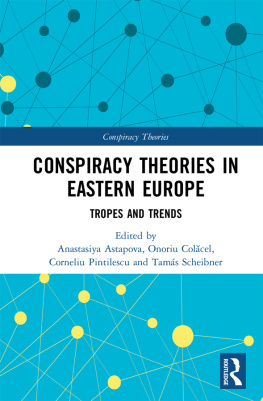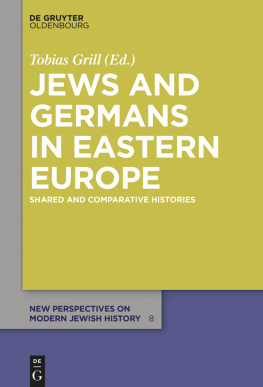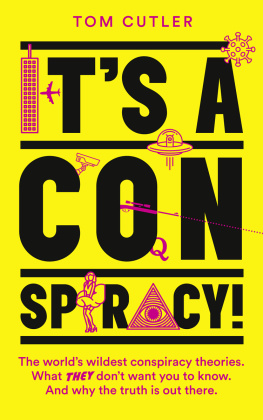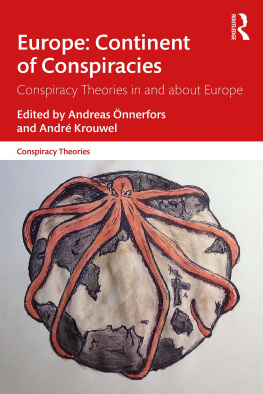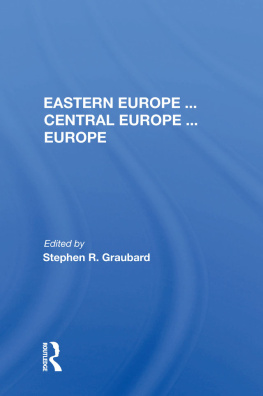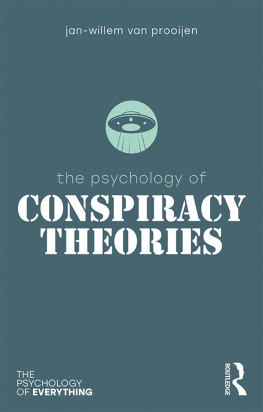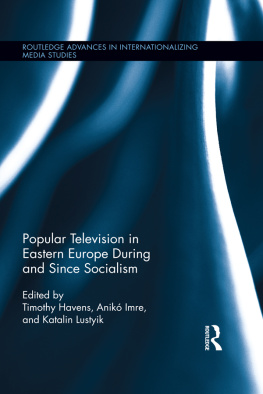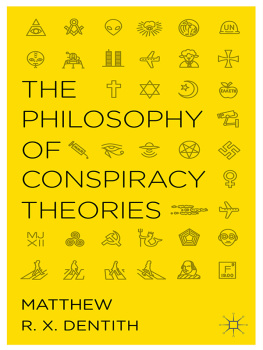Conspiracy Theories in Eastern Europe
This collection of state-of-the-art essays explores conspiracy cultures in post-socialist Eastern Europe, ranging from the nineteenth century to contemporary manifestations.
Conspiracy theories about Freemasons, Communists and Jews, about the Chernobyl disaster, and about George Soros and the globalist elite have been particularly influential in Eastern Europe, but they have also been among the most prominent worldwide. This volume explores such conspiracy theories in the context of local Eastern European histories and discourses. The chapters identify four major factors that have influenced cultures of conspiracy in Eastern Europe: nationalism (including ethnocentrism and antisemitism), the socialist past, the transition period, and globalization. The research focuses on the impact of imperial legacies, nation-building, and the Cold War in the creation of conspiracy theories in Eastern Europe; the effects of the fall of the Iron Curtain and conspiracism in a new democratic setting; and manifestations of viral conspiracy theories in contemporary Eastern Europe and their worldwide circulation with the global rise of populism. Bringing together a diverse landscape of Eastern European conspiracism that is a result of repeated exchange with the West, the book includes case studies that examine the history, legacy, and impact of conspiracy cultures of Bulgaria, Estonia, Hungary, Moldova, Poland, Romania, Russia, Slovakia, Ukraine, the former Yugoslav countries, and the former Soviet Union.
The book will appeal to scholars and students of conspiracy theories as well as those in the areas of political science, area studies, media studies, cultural studies, psychology, philosophy, and history, among others. Politicians, educators, and journalists will find this book a useful resource in countering disinformation in and about the region.
Anastasiya Astapova is a research fellow at the Department of Estonian and Comparative Folklore at the University of Tartu, Estonia.
Onoriu Colcel is a senior lecturer in English at Stefan cel Mare University of Suceava, Romania.
Corneliu Pintilescu is a researcher at the George Baritiu History Institute (in Cluj-Napoca) of the Romanian Academy.
Tams Scheibner is an assistant professor in literary and cultural studies at the University of Budapest (ELTE), Hungary, and a senior research fellow in contemporary history at the Research Centre for the Humanities, Hungarian Academy of Sciences Institute of Excellence.
Conspiracy Theories
Series Editors:
Peter Knight
University of Manchester
Michael Butter
University of Tbingen
Conspiracy theories have a long history and exist in all modern societies. However, their visibility and significance are increasing today. Conspiracy theories can no longer be simply dismissed as the product of a pathological mind-set located on the political margins.
This series provides a nuanced and scholarly approach to this most contentious of subjects. It draws on a range of disciplinary perspectives including political science, sociology, history, media and cultural studies, area studies and behavioural sciences. Issues covered include the psychology of conspiracy theories, changes in conspiratorial thinking over time, the role of the Internet, regional and political variations and the social and political impact of conspiracy theories.
The series will include edited collections, single-authored monographs and short-form books.
Routledge Handbook of Conspiracy Theories
Edited by Michael Butter and Peter Knight
Contemporary Conspiracy Culture
Truth and Knowledge in an Era of Epistemic Instability
Jaron Harambam
Strategic Conspiracy Narratives
A Semiotic Approach
Mari-Liis Madisson and Andreas Ventsel
Conspiracy Narratives from South of the Border
Bad Hombres do the Twist
Gonzalo Soltero
Conspiracy Theories in Eastern Europe
Tropes and Trends
Edited by Anastasiya Astapova, Onoriu Colcel, Corneliu Pintilescu, and Tams Scheibner
For a full list of titles in this series please visit www.routledge.com
Conspiracy Theories in Eastern Europe
Tropes and Trends
Edited by Anastasiya Astapova, Onoriu Colcel, Corneliu Pintilescu, and Tams Scheibner
First published 2021
by Routledge
2 Park Square, Milton Park, Abingdon, Oxon OX14 4RN
and by Routledge
52 Vanderbilt Avenue, New York, NY 10017
Routledge is an imprint of the Taylor & Francis Group, an informa business
2021 selection and editorial matter, Anastasiya Astapova, Onoriu Colcel, Corneliu Pintilescu and Tams Scheibner; individual chapters, the contributors
The right of Anastasiya Astapova, Onoriu Colcel, Corneliu Pintilescu and Tams Scheibner to be identified as the authors of the editorial material, and of the authors for their individual chapters, has been asserted in accordance with sections 77 and 78 of the Copyright, Designs and Patents Act 1988.
All rights reserved. No part of this book may be reprinted or reproduced or utilised in any form or by any electronic, mechanical, or other means, now known or hereafter invented, including photocopying and recording, or in any information storage or retrieval system, without permission in writing from the publishers.
Trademark notice: Product or corporate names may be trademarks or registered trademarks, and are used only for identification and explanation without intent to infringe.
British Library Cataloguing-in-Publication Data
A catalogue record for this book is available from the British Library
Library of Congress Cataloging-in-Publication Data
Names: Astapova, Anastasiya, editor.
Title: Conspiracy theories in Eastern Europe : tropes and trends / edited by Anastasiya Astapova, Onoriu Colacel, Corneliu Pintilescu and Tamas Scheibner.
Description: Abingdon, Oxon ; New York, NY : Routledge, 2021. | Series: Conspiracy theories | Includes bibliographical references and index.
Identifiers: LCCN 2020023573 (print) | LCCN 2020023574 (ebook) | ISBN 9780367344771 (hardback) | ISBN 9780429326073 (ebook)
Subjects: LCSH: Conspiracy theoriesEurope, Eastern. | Political cultureEurope, Eastern. | Post-communismEurope, Eastern. | PopulismEurope, Eastern. | Europe, EasternSocial conditions1989
Classification: LCC HV6295.E87 C66 2021 (print) | LCC HV6295.E87 (ebook) | DDC 001.90947dc23
LC record available at https://lccn.loc.gov/2020023573
LC ebook record available at https://lccn.loc.gov/2020023574
ISBN: 978-0-367-34477-1 (hbk)
ISBN: 978-0-429-32607-3 (ebk)
Typeset in Times New Roman
by Apex CoVantage, LLC
Contents
ANASTASIYA ASTAPOVA, ONORIU COLCEL, CORNELIU PINTILESCU, AND TAMS SCHEIBNER
PART I
Conspiracy culture under Socialism and its afterlife in Eastern Europe
ANASTASIYA ASTAPOVA
PASCAL GIRARD
ANNA KIRZIUK
PART II
The enemy within: Jews and Freemasons
PTER CSUNDERLIK AND TAMS SCHEIBNER
TODOR HRISTOV AND IVELINA IVANOVA
DOMINIKA BULSKA, AGNIESZKA HASKA, MIKOAJ WINIEWSKI, AND MICHA BILEWICZ
PART III
After independence: nation-building and victimhood narratives
NEBOJA BLANUA
OLGA BAYSHA

